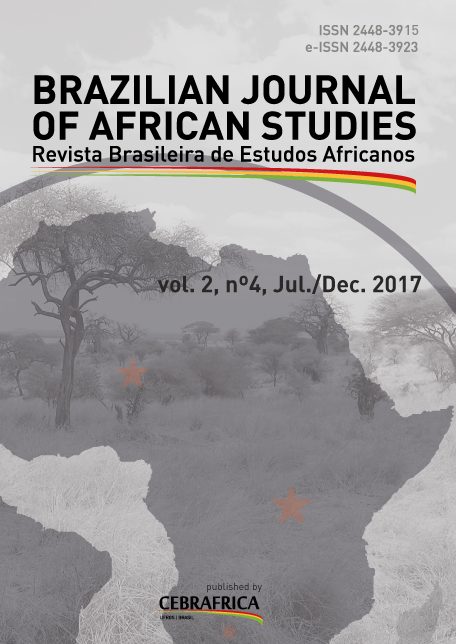FROM CONVENIENT HIBERNATION TO CIRCUMSTANTIAL DESPERATION: HATE SPEECH, PARTY POLITICAL COMMUNICATION AND THE NIGERIA’S 2015 GENERAL ELECTIONS
DOI:
https://doi.org/10.22456/2448-3923.77926Keywords:
Political Communication, Hate speech, Political Party, Election, Campaign.Abstract
Until a few months to the 2015 general elections, many political parties that have conveniently hibernated for a better part of their existence, perhaps owing to lack of proper organizational structure or support base, uncoordinated programmes or were registered because of pecuniary gains or admittance of anticipated poor electoral outing, suddenly began to jostle for political space. The main opposition party and the ruling party were either perfecting a merger processes or engulfed in internal wrangling such that communication with the electorate on fundamental issues became inconsequential. In fact, the two dominant parties, the Peoples Democratic Party and All Progressive Congress only produced their presidential candidates less than five months to the election; and the electoral campaign assumed desperate contestation in a climate of prejudice and intolerance. Hate speeches and violence were the hallmarks of their electoral campaigns. The 2015 general elections therefore, offer a unique context to interrogate the place of party political communication in an emerging democracy and specifically how hate campaigns among political gladiators/contending parties could generate violence, and if not tamed, derail democratic consolidation. This essay affirms that hate speech is not only inspired by some social circumstances but also part of a general democratic process. It attests to the fact that Nigerian politicians have become more desperate and daring in taking and retaining political power; and more intolerant of opposition, criticism and efforts at replacing them. Relying extensively on secondary sources with the aid of descriptive and narrative tools, this essay concludes that the political culture of a country determines the behavior and attitude of the population towards the political system and that democratic transition from one administration to another, particularly in emerging democracies, has often been accompanied by violence promoted by desires of the political party in power to consolidate their grips on power and by opposition parties interest to capture same.
Downloads
Downloads
Published
How to Cite
Issue
Section
License
The author will hold copyright over the published articles and retain publishing rights.

Brazilian Journal of African Studies is licensed under a Creative Commons Atribuição 4.0 Internacional.


